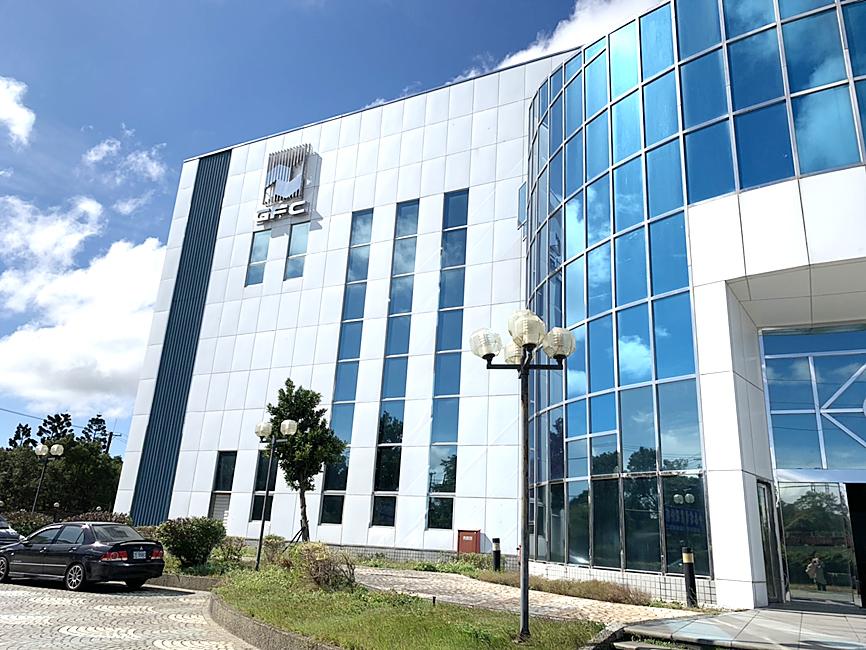Elevator supplier Golden Friends Corp (崇友實業) yesterday posted NT$330.48 million (US$11.62 million) in revenue for last month, a 38.7 percent rise from a month earlier, amid continued recovery in the local property market, although the figure fell 15.15 percent from a year earlier.
Revenue in the first quarter totaled NT$1.03 billion, a 3.66 percent increase from a year earlier, Golden Friends data showed.
Replacement of old elevators rose 16.35 percent, accounting for 24.69 percent of overall installments, or 500 elevators, in the January-to-March period, the Taipei-based company said in a statement.

Photo: Lin Jing-hua, Taipei Times
Its maintenance and repair business serviced 37,100 elevators and escalators in the quarter, an increase of 4 percent from a year earlier as government agencies and companies become more aware that elevators play an important part in building safety, it said.
Golden Friends is upbeat about its business going forward, even though developers might turn cautious following a spate of unfavorable policies to cool the property market, as real demand for housing and office space remains, the company said.
Firms shifting manufacturing facilities home from China would also lend support to its business, it said.
Contracts on hand so far this year have spiked 18.05 percent from the same time a year earlier, laying a healthy foundation for business in the short to medium term, Golden Friends said.
It intends to boost its market share by spending more to improve the ease and convenience of elevator rides, helped by the latest technologies, it said.
Last month, Golden Friends proposed a cash dividend of NT$3 per share based on its net income of NT$726 million last year, or earnings per share of NT$4.1.

When an apartment comes up for rent in Germany’s big cities, hundreds of prospective tenants often queue down the street to view it, but the acute shortage of affordable housing is getting scant attention ahead of today’s snap general election. “Housing is one of the main problems for people, but nobody talks about it, nobody takes it seriously,” said Andreas Ibel, president of Build Europe, an association representing housing developers. Migration and the sluggish economy top the list of voters’ concerns, but analysts say housing policy fails to break through as returns on investment take time to register, making the

NOT TO WORRY: Some people are concerned funds might continue moving out of the country, but the central bank said financial account outflows are not unusual in Taiwan Taiwan’s outbound investments hit a new high last year due to investments made by contract chipmaker Taiwan Semiconductor Manufacturing Co (TSMC, 台積電) and other major manufacturers to boost global expansion, the central bank said on Thursday. The net increase in outbound investments last year reached a record US$21.05 billion, while the net increase in outbound investments by Taiwanese residents reached a record US$31.98 billion, central bank data showed. Chen Fei-wen (陳斐紋), deputy director of the central bank’s Department of Economic Research, said the increase was largely due to TSMC’s efforts to expand production in the US and Japan. Investments by Vanguard International

STRUGGLING TO SURVIVE: The group is proposing a consortium of investors, with Tesla as the largest backer, and possibly a minority investment by Hon Hai Precision Nissan Motor Co shares jumped after the Financial Times reported that a high-level Japanese group has drawn up plans to seek investment from Elon Musk’s Tesla Inc to aid the struggling automaker. The group believes the electric vehicle (EV) maker is interested in acquiring Nissan’s plants in the US, the newspaper reported, citing people it did not identify. The proposal envisions a consortium of investors, with Tesla as the largest backer, but also includes the possibility of a minority investment by Hon Hai Precision Industry Co (鴻海精密) to prevent a full takeover by the Apple supplier, the report said. The group is

EARLY TALKS: Measures under consideration include convincing allies to match US curbs, further restricting exports of AI chips or GPUs, and blocking Chinese investments US President Donald Trump’s administration is sketching out tougher versions of US semiconductor curbs and pressuring key allies to escalate their restrictions on China’s chip industry, an early indication the new US president plans to expand efforts that began under former US president Joe Biden to limit Beijing’s technological prowess. Trump officials recently met with their Japanese and Dutch counterparts about restricting Tokyo Electron Ltd and ASML Holding NV engineers from maintaining semiconductor gear in China, people familiar with the matter said. The aim, which was also a priority for Biden, is to see key allies match China curbs the US